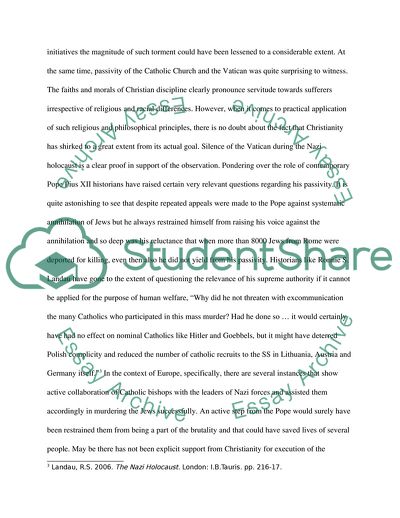Cite this document
(The Role of the Catholic Church and the Vatican During the Nazi Literature review, n.d.)
The Role of the Catholic Church and the Vatican During the Nazi Literature review. Retrieved from https://studentshare.org/history/1734070-analyse-the-role-of-the-catholic-church-and-the-vatican-during-the-nazi-holocaust
The Role of the Catholic Church and the Vatican During the Nazi Literature review. Retrieved from https://studentshare.org/history/1734070-analyse-the-role-of-the-catholic-church-and-the-vatican-during-the-nazi-holocaust
(The Role of the Catholic Church and the Vatican During the Nazi Literature Review)
The Role of the Catholic Church and the Vatican During the Nazi Literature Review. https://studentshare.org/history/1734070-analyse-the-role-of-the-catholic-church-and-the-vatican-during-the-nazi-holocaust.
The Role of the Catholic Church and the Vatican During the Nazi Literature Review. https://studentshare.org/history/1734070-analyse-the-role-of-the-catholic-church-and-the-vatican-during-the-nazi-holocaust.
“The Role of the Catholic Church and the Vatican During the Nazi Literature Review”. https://studentshare.org/history/1734070-analyse-the-role-of-the-catholic-church-and-the-vatican-during-the-nazi-holocaust.


